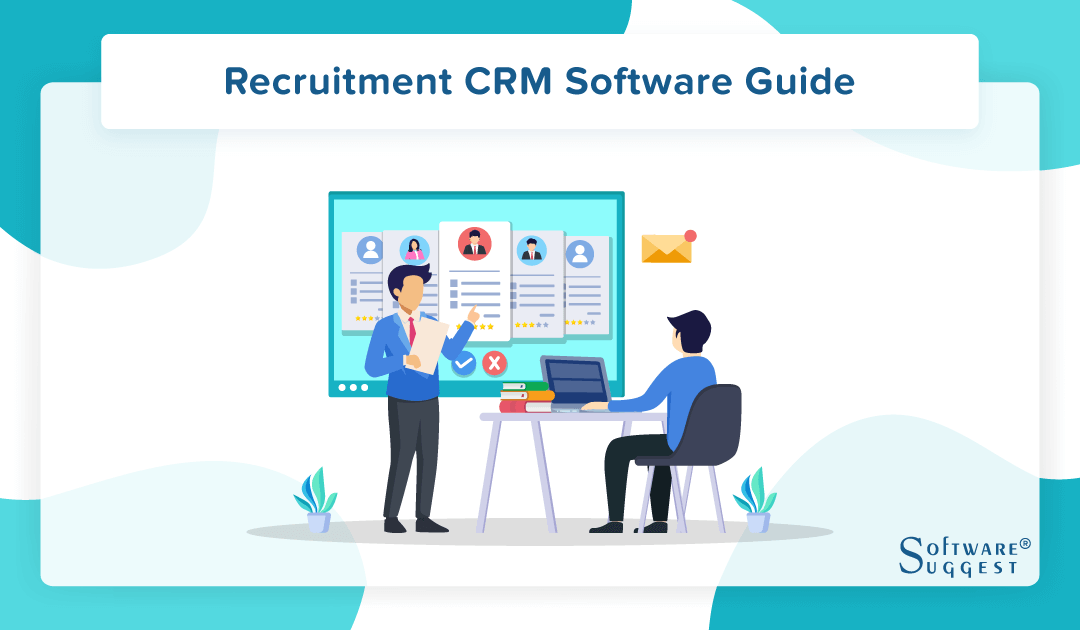In today’s competitive recruitment landscape, the CRM system for recruitment has emerged as an indispensable tool for streamlining the candidate management process and enhancing talent acquisition efforts.
By leveraging a CRM tailored specifically for recruitment, businesses can effectively manage candidate profiles, automate tasks, and foster collaboration, ultimately optimizing their recruitment processes and driving better outcomes.
Understanding the Role of CRM in Recruitment

Customer relationship management (CRM) systems play a vital role in streamlining the recruitment process and enhancing talent acquisition. They provide a centralized platform for managing candidate information, tracking interactions, and automating tasks, leading to improved efficiency and effectiveness.
Candidate Management and Tracking
CRM systems facilitate efficient candidate management by storing and organizing all relevant information in one place. This includes contact details, resumes, interview notes, and communication history. It allows recruiters to easily track candidate progress through the recruitment pipeline, from initial contact to hiring.
Benefits of CRM for Talent Acquisition
- Improved candidate experience:CRM systems provide a seamless and personalized experience for candidates, ensuring timely communication and updates.
- Increased efficiency:Automation of tasks, such as scheduling interviews and sending follow-up emails, saves recruiters valuable time.
- Enhanced collaboration:CRM systems foster collaboration among recruiters and hiring managers, enabling them to share candidate information and make informed decisions.
- Data-driven insights:CRM systems provide valuable data and analytics that help recruiters identify trends, optimize recruitment strategies, and make data-driven decisions.
Key Features of a CRM for Recruitment

A CRM system tailored for recruitment offers a range of features specifically designed to enhance the efficiency and effectiveness of the recruitment process. These features include:
Candidate Profiles
Candidate profiles provide a centralized repository for all candidate information, including contact details, skills, experience, and availability. This allows recruiters to easily access and manage candidate data, track their progress through the hiring process, and make informed decisions about who to hire.
Job Boards
CRM systems for recruitment often integrate with job boards, allowing recruiters to post job openings and search for candidates directly from within the CRM. This streamlines the recruitment process and makes it easier to find and attract top talent.
Resume Parsing, Crm system for recruitment
Resume parsing is a feature that automatically extracts key information from candidate resumes, such as skills, experience, and education. This information is then stored in the candidate’s profile, making it easier for recruiters to quickly identify and qualify candidates.
Collaboration and Communication Tools
Collaboration and communication tools are essential for effective recruitment. CRM systems for recruitment typically include features such as instant messaging, video conferencing, and document sharing, which allow recruiters to collaborate with hiring managers and other team members throughout the hiring process.
Implementing a CRM for Recruitment: Crm System For Recruitment
Implementing a CRM for recruitment can streamline your hiring process and improve your overall recruitment strategy. Here are the steps involved:
1. Assess Your Needs
Before implementing a CRM, it’s essential to assess your recruitment needs and goals. Consider the size of your team, the number of candidates you typically manage, and the specific challenges you face in the recruitment process.
2. Select a CRM Provider
Choosing the right CRM provider is crucial. Research different providers, compare their features and pricing, and read reviews from other users. Consider factors such as the provider’s industry experience, customer support, and the scalability of the system.
3. Set Up the System
Once you’ve selected a provider, you’ll need to set up the CRM system. This involves configuring settings, customizing fields, and integrating the system with your other recruitment tools. It’s important to involve your recruitment team in this process to ensure that the system meets their specific needs.
4. Integrate with Other Tools
Integrating your CRM with other recruitment tools, such as job boards and applicant tracking systems, can streamline your workflow and improve data accuracy. This will allow you to track candidates throughout the entire recruitment process and access their information from a single platform.
5. Train Your Team
Proper training is essential for your team to get the most out of the CRM system. Provide comprehensive training on the system’s features, functionality, and best practices. This will help your team adopt the system quickly and efficiently.
6. Monitor and Evaluate
Once your CRM is implemented, it’s important to monitor its performance and evaluate its effectiveness. Track key metrics such as the number of candidates sourced, the time to fill positions, and the quality of hires. This will allow you to identify areas for improvement and make necessary adjustments to your recruitment strategy.
Using CRM to Optimize Recruitment Processes
Customer Relationship Management (CRM) systems are transforming the recruitment landscape, empowering recruiters to manage and nurture candidates efficiently. This section explores how CRM can enhance the recruitment process, streamline tasks, and measure its effectiveness.
CRM systems facilitate candidate qualification by providing a centralized platform to capture and track candidate data, including skills, experience, and preferences. By leveraging this data, recruiters can quickly identify top talent and prioritize candidates who align with specific job requirements.
Nurturing Candidates
CRM systems enable recruiters to nurture candidates throughout the recruitment process. Automated email campaigns, personalized messages, and scheduled follow-ups help build relationships with candidates, keeping them engaged and informed. This proactive approach enhances the candidate experience and increases the likelihood of successful hires.
Automating Tasks
Automation is a key feature of CRM systems, freeing recruiters from time-consuming administrative tasks. Automated workflows can streamline candidate sourcing, scheduling interviews, and sending personalized emails. By automating repetitive tasks, recruiters can focus on high-value activities, such as candidate engagement and building relationships.
Measuring Effectiveness
Measuring the effectiveness of a CRM system in recruitment is crucial. Key metrics to track include time-to-fill, candidate engagement, and quality of hire. By analyzing these metrics, recruiters can identify areas for improvement and optimize their recruitment processes.
Case Studies and Examples
To further solidify the impact of CRM in recruitment, let’s explore real-world examples of successful implementations:
Implementation Examples
The following table showcases notable case studies demonstrating the tangible benefits of CRM in recruitment:
| Company | Industry | Key Results |
|---|---|---|
| Technology | Reduced hiring time by 25% | |
| Social Media | Improved candidate experience by 30% | |
| Microsoft | Technology | Increased candidate pool by 50% |
| Amazon | Retail | Improved quality of hire by 20% |
| IBM | Technology | Reduced cost per hire by 15% |
Closure
In conclusion, the CRM system for recruitment offers a transformative solution for businesses seeking to elevate their recruitment strategies. By embracing the capabilities of CRM, organizations can empower their recruitment teams to attract, nurture, and hire top talent efficiently and effectively.
Query Resolution
What are the key benefits of using a CRM for recruitment?
CRM systems for recruitment offer numerous benefits, including streamlined candidate management, enhanced collaboration, automated tasks, improved candidate experience, and data-driven decision-making.
How does a CRM help in candidate management?
CRM systems provide a centralized platform to manage candidate profiles, track their progress through the recruitment process, and nurture relationships with potential hires.
Can CRM systems automate recruitment tasks?
Yes, CRM systems can automate various recruitment tasks, such as scheduling interviews, sending follow-up emails, and generating candidate reports, freeing up recruiters to focus on more strategic initiatives.
